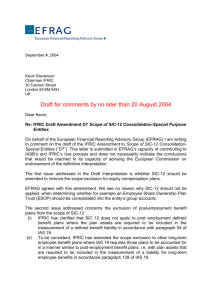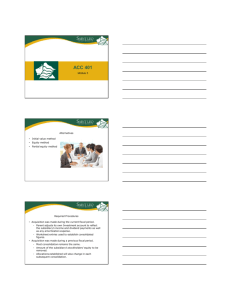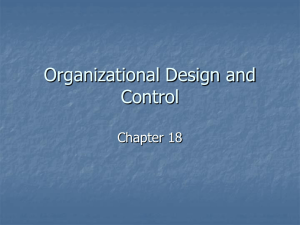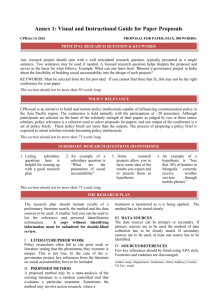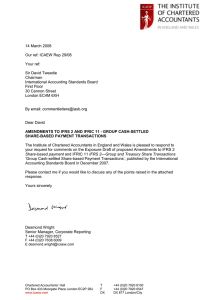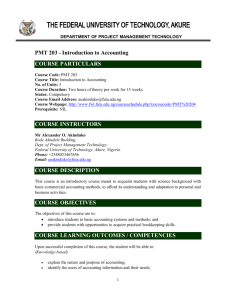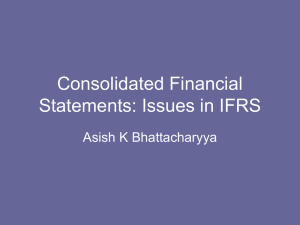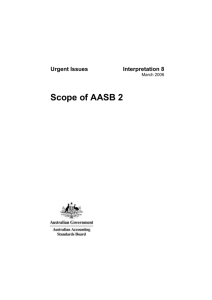18 July 2005
advertisement
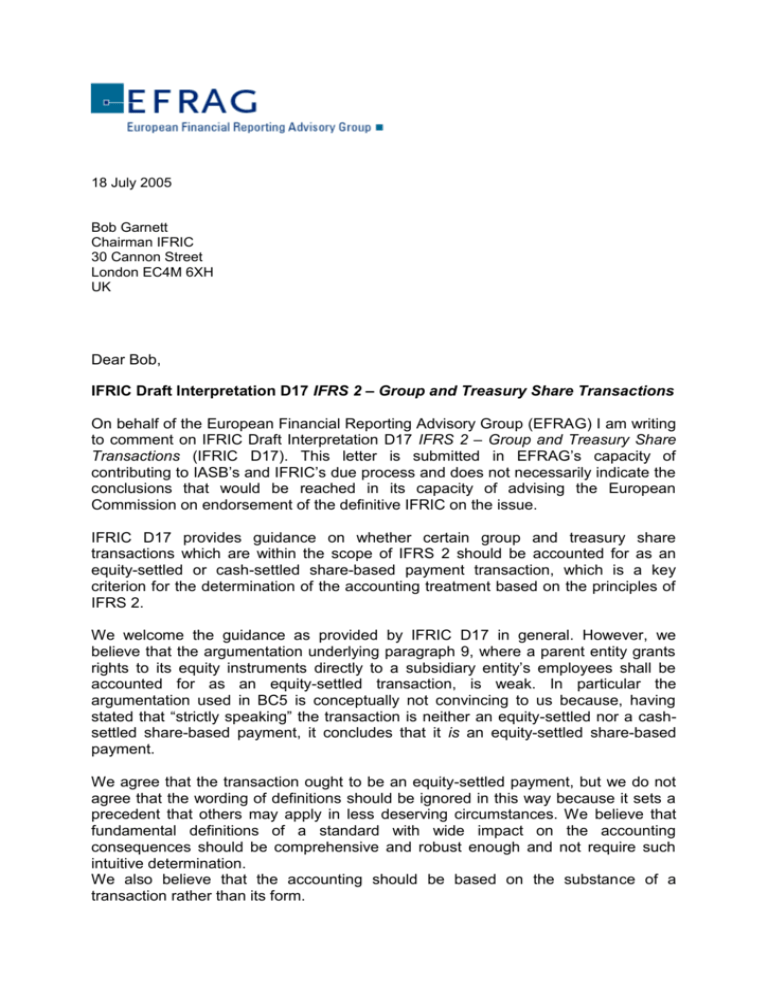
18 July 2005 Bob Garnett Chairman IFRIC 30 Cannon Street London EC4M 6XH UK Dear Bob, IFRIC Draft Interpretation D17 IFRS 2 – Group and Treasury Share Transactions On behalf of the European Financial Reporting Advisory Group (EFRAG) I am writing to comment on IFRIC Draft Interpretation D17 IFRS 2 – Group and Treasury Share Transactions (IFRIC D17). This letter is submitted in EFRAG’s capacity of contributing to IASB’s and IFRIC’s due process and does not necessarily indicate the conclusions that would be reached in its capacity of advising the European Commission on endorsement of the definitive IFRIC on the issue. IFRIC D17 provides guidance on whether certain group and treasury share transactions which are within the scope of IFRS 2 should be accounted for as an equity-settled or cash-settled share-based payment transaction, which is a key criterion for the determination of the accounting treatment based on the principles of IFRS 2. We welcome the guidance as provided by IFRIC D17 in general. However, we believe that the argumentation underlying paragraph 9, where a parent entity grants rights to its equity instruments directly to a subsidiary entity’s employees shall be accounted for as an equity-settled transaction, is weak. In particular the argumentation used in BC5 is conceptually not convincing to us because, having stated that “strictly speaking” the transaction is neither an equity-settled nor a cashsettled share-based payment, it concludes that it is an equity-settled share-based payment. We agree that the transaction ought to be an equity-settled payment, but we do not agree that the wording of definitions should be ignored in this way because it sets a precedent that others may apply in less deserving circumstances. We believe that fundamental definitions of a standard with wide impact on the accounting consequences should be comprehensive and robust enough and not require such intuitive determination. We also believe that the accounting should be based on the substance of a transaction rather than its form. Further we recommend IFRIC to clarify the Illustrative Example and add guidance dealing with the accounting treatment of non-controlling interests. Our response to the specific question raised in IFRIC D17 is attached in the Appendix. We hope that you find the above comments helpful. If you wish to discuss them further, please do not hesitate to contact Paul Ebling or myself. Yours sincerely Stig Enevoldsen EFRAG, Chairman 2 APPENDIX Question raised in the IFRIC Draft Interpretation D17: Paragraph 9 of the draft Interpretation proposes that share-based payment transactions in which a parent entity grants rights to its equity instruments* direct to a subsidiary entity’s employees should be accounted for as equity-settled transactions. Paragraph 11 proposes that, for transactions in which a subsidiary entity grants to its employees rights to equity instruments of its parent, the subsidiary entity should account for those transactions as cashsettled transactions. Therefore, in the subsidiary’s individual financial statements, the accounting treatment of transactions in which a subsidiary’s employees are granted rights to equity instruments of its parent would differ, depending on whether the parent or the subsidiary granted those rights to the subsidiary’s employees. This is because the IFRIC concluded that, in the former situation, the subsidiary has not incurred a liability to transfer cash or other assets of the entity to its employees, whereas it has incurred such a liability in the latter situation (being a liability to transfer equity instruments of its parent). Do you agree with these proposals? * References in paragraphs 9-11 of the draft interpretation to equity instruments of the parent entity also include equity instruments of another entity in the same group. EFRAG response: Although we accept the distinction between equity-settled transactions and cashsettled transactions as a basic concept in IFRS 2, we are not convinced that the line that these paragraphs propose to draw between the two models has been drawn correctly in this case. We believe that, in reality, subsidiary companies do not generally decide unilaterally to grant options to acquire parent company shares to the subsidiary's employees: it is often the parent company that decides, perhaps for legal or tax reasons, that it should be the subsidiary and not the parent that legally makes the grant. Furthermore, in many cases the parent also undertakes to transfer the shares needed free of charge to the subsidiary. In such circumstances we are uncomfortable with the accounting treatment proposed in paragraphs 9 and 11 of D17; in our view it is based on the form of the transaction rather than its substance. Therefore we disagree in particular with the last sentence of paragraph 11.
